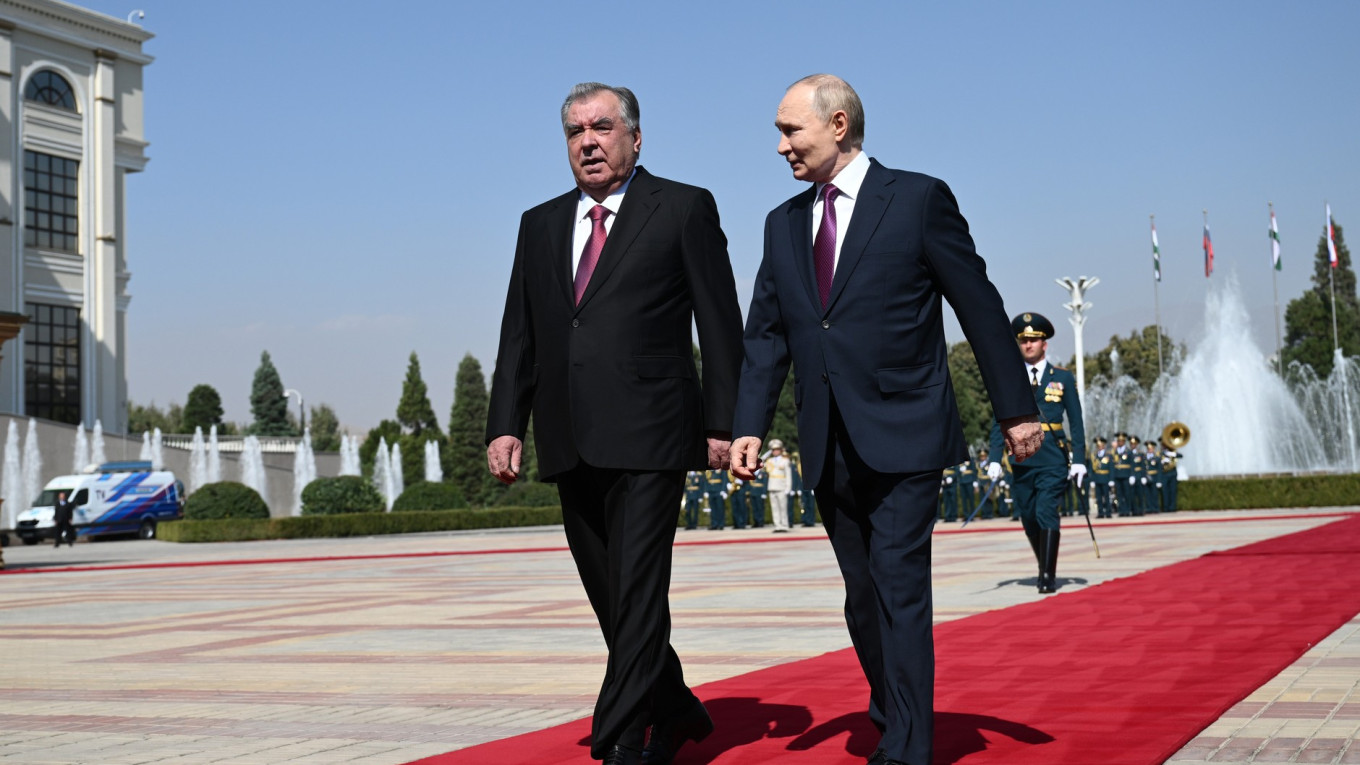Russian President Vladimir Putin arrived in Tajikistan on October 9 for a three-day visit, despite an active arrest warrant issued by the International Criminal Court (ICC) for his role in war crimes, including the deportation of hundreds of Ukrainian children from occupied territories.
The ICC issued the warrant for Putin and Russia’s children’s commissioner Maria Lvova-Belova in March 2023, accusing them of unlawful deportation and transfer of children from occupied areas of Ukraine to Russia - acts considered war crimes under international law.
Putin was received with full honors by Tajik President Emomali Rahmon, including handshakes, embraces, and a ceremonial military welcome, according to media reports.
He is in Dushanbe to take part in the Russia-Central Asia summit and a meeting of the Commonwealth of Independent States (CIS), where he has already held talks with Azerbaijani President Ilham Aliyev.
Putin’s visit comes as Moscow seeks to reinforce its diminishing sway in Central Asia, where China and Western nations are increasingly vying for influence. Over the three-day trip, he is expected to meet with regional leaders to discuss security and economic cooperation, while promoting new energy and infrastructure projects aimed at preserving Russia’s foothold in the region.
Tajikistan defies ICC arrest warrant
Human Rights Watch had urged Tajikistan to deny Putin entry or arrest him, citing the ICC warrant, while the European Union condemned the host country for failing to fulfill its obligations under international law.
The EU’s External Action Service stated that Tajikistan, as a state party to the Rome Statute, should have executed the warrant and reiterated support for the ICC’s investigation into crimes committed in Ukraine.
“The EU expresses its strongest support for efforts to ensure full accountability for all crimes under international law, human rights violations and abuses stemming from the Russian war of aggression,” the EEAS said, adding that the bloc continues to support Ukraine’s independence, sovereignty, and territorial integrity.
Putin’s decision to travel follows a precedent from last year, when he was welcomed in Mongolia, another ICC member state, despite similar legal obligations.
Russia does not recognize the ICC’s authority, which the Kremlin considers invalid.




